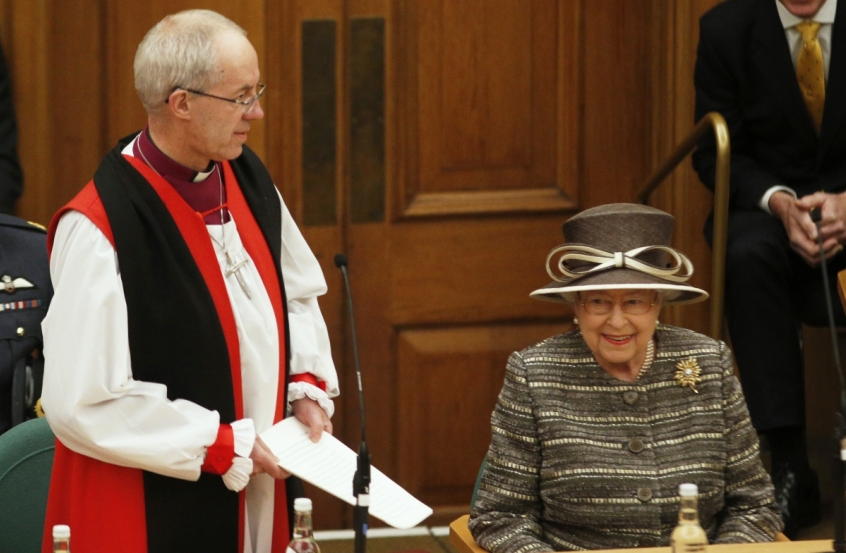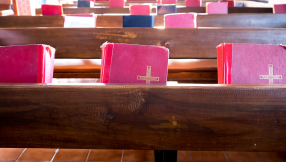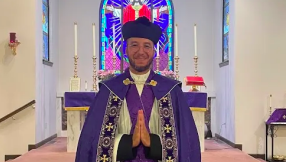
The Church of England's position as the established church with the Queen as Supreme Governor is "no longer tenable" and needs a rethink, according to a report today.
As churchgoing and belief in God continues to decline, the public role of religion in Britain needs "significant reform" says the new report from the National Secular Society.
Its main demand is that the Church of England should no longer enjoy the patronage of the state.
The report notes that the Church of England is established only in England, not Wales, Scotland or Northern Ireland. The Church of Scotland is the national church in Scotland but has few privileges comparable to those of the Church of England.
"One of the greatest privileges of the Church of England is the 26 bishops from English dioceses with ex officio seats in the UK Parliament, which gives them significant power to introduce and amend UK-wide legislation," the report says. "The UK parliament is the only one in the world where bishops have such seats.
"Other significant privileges include the Church's currently pre-eminent role in national ceremonies, especially the coronation, and the monarch being the Supreme Governor of the Church, over whose liturgy and regulation Parliament has nominal control."
The National Secular Society says this privileged status fails to reflect society as it is today and leads to inequity and unfairness.
The secularists also call for a moratorium on all new faith schools.
"The time has come to separate church and state in order to ensure equality and fairness for believers and non-believers alike," said the society.
Rethinking religion and belief in public life, which is being sent this week to all MPs, calls for Britain to "evolve" into a secular democracy with a clear separation between religion and state.
It says the current multi-faith approach is "at odds with the increasing religious indifference" in Britain.
Terry Sanderson, president of the National Secular Society, said: "Vast swathes of the population are simply not interested in religion, it doesn't play a part in their lives, but the state refuses to recognise this.
"Britain is now one of the most religiously diverse and, at the same time, non-religious nations in the world. Rather than burying its head in the sand, the state needs to respond to these fundamental cultural changes.
"Our report sets out constructive and specific proposals to fundamentally reform the role of religion in public life to ensure that every citizen can be treated fairly and valued equally, irrespective of their religious outlook."
The report also warns that the rise of so called 'sharia courts' risks undermining the legal system. Allowing groups to opt-out of the state legal system in favour of a religious alternative "strikes at the heart of citizenship and a cohesive society", it says.
The report also urges politicians to refrain from describing Britain as a "Christian country".
"Any approach which seeks to label the values widely shared by UK citizens as exclusively 'Christian' is doomed to be out of touch with the views and lifestyles of the population", it states.
Rabbi Dr Jonathan Romain of Maidenhead Synagogue said: "It may be true that more people in Britain are now secular rather than religious, but the report dismisses too easily the fact that the country is still based on Christian culture and Christian values.
"It also glosses over the fact that the Church of England has been very accomodating to other faiths and stepped back to make room for them in the national life. While this may undermine the NSS's assertions about the disproportionate role of faith in Britain, some of the recommendations still deserve attention.
"Publicly funded faith schools have become agents of segregation and should no longer be allowed to discriminate in pupil admissions or teacher employment. The role of Sharia Councils should be reviewed to ensure that individual freedoms are not denied. A Humanist should be allowed to contribute to the BBC's Thought for the Day. Expansive demands such as Disestablishment are an ask-too-far, but some gentle nudges are needed to keep faith tolerant."













